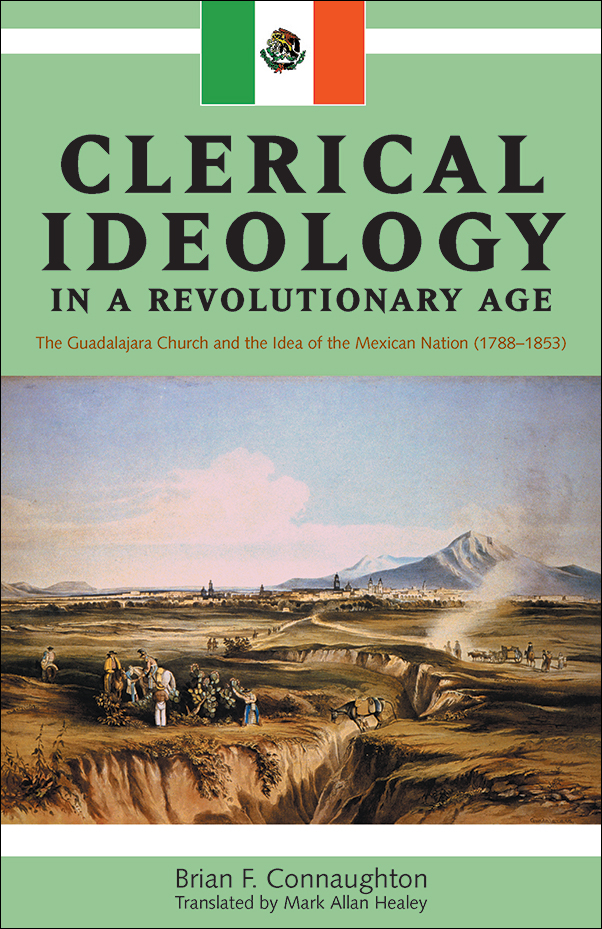
Clerical Ideology in a Revolutionary Age: The Guadalajara Church and the Idea of the Mexican Nation, 1788-1853
Brian F. Connaughton, , Translated by Mark A. Healey
$34.95 CAD / $34.95 USD (S)
435 pages
6 x 9 inches
Hardback: 978-1-55238-083-3
Paperback: 978-1-55238-108-3
Library PDF: 978-1-55238-311-7
February 2003
A nuanced examination of the role of the Catholic Church in the making of Mexico as a nation, analyzing primary sources within the broader context of the Enlightenment.
Clerical Ideology in a Revolutionary Age clearly delineates the role of the Catholic Church in the making of Mexico as a nation. It provides a nuanced sense of clerical thought during the turbulent years leading to and following Mexico’s national independence. Connaughton delves deeply into various primary sources from Guadalajara between 1788 and 1853, including printed sermons of high clergymen, contemporaneous newspapers, pamphletry, and pastoral letters.
Analyzing this literature in the broader context of the Enlightenment, Connaughton looks at the Enlightenment’s potentially corrosive ideas, the rise of liberalism, the complex relationship between Church and State, and the spread of secular mentality. With a balanced approach to clerical discourse, this study of the substance, contradictions, and evolution of Church thinking and political posturing in the face of Bourbon Reforms and the rise of liberalism should be required reading for any student or scholar of Mexican history.
Brian Connaughton earned his PhD in Latin American Studies (History) from Universidad Nacional Autonoma de México. He is a professor and researcher at the Universidad Autonoma Metropolitana, Iztapalapa (Mexico City). He has published widely on late eighteenth- and early nineteenth-century political culture and Catholicism in Mexico.
Acknowledgements
Introduction
1. A Framework for Studying Clerical Ideology in Guadalajara
2. Imperial Spokesman for Regional Interests: The Clergy and Government of Guadalajara in the Colonial Period
3. Tensions at the Heart of Clerical Ideology in a Revolutionary Era, 1810–20
4. Towards a Reordered Church: Sermons as Discursive Testimony, 1821–53
5. A Fundamental Shift: Independence, Popular Sovereignty, and Freedom of the Press
6. Hegemony Renewed: The Beginnings of a Clerical Counterdiscourse
7. Verbal Virulence and the Struggle for the State
8. The Great Unresolved Issues: The Patronage and Tithes During the Constitutional Regime, 1827–33
9. Clerical Discourse Claims for Itself the Representation of the National Will, 1833–53
Conclusion
Notes
Bibliography
Index
This is an excellent book, as much a landmark study in the history of political thought in Mexico as Bernard Bailyn’s Pamphlets of the American Revolution has been for the U.S. in the eighteenth century.
—William B. Taylor, University of California Berkeley
A significant piece of historical work that deserves a wider, Anglophone audience.
—Eric Van Young, University of California San Diego